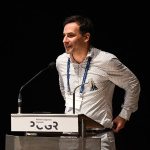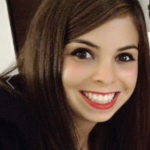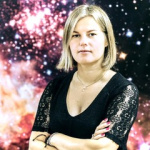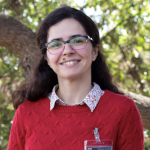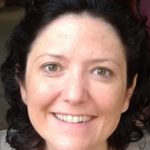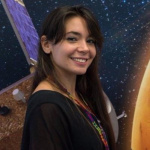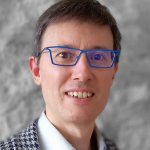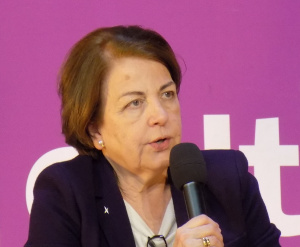Meet the New Board Members of the Europlanet Society
The results of the elections of the Europlanet Society Executive Board were announced at the Europlanet General Assembly on Friday, 10 November. Eight new members of the Board were elected including a Vice-President, two Secretaries (co-position) and five new Board Members.
They join Ann Carine Vandaele, who takes up the mantle of President following her year as President-Elect (elected 2022), Treasurer Didier Moreau (elected 2021) and Vice President Angelo Pio Rossi (elected 2019 with a one year extended term to ensure that the turn-over of the Board is staggered).
Find out about their objectives and what they hope to achieve by serving on the Board of the Europlanet Society over the next four years.
Vice President
Stravro Ivanovski
The birth of the Europlanet Society has been followed by the establishment of a Society with long-term activities and values based on inclusiveness, high quality science and outreach, and a sustainable structure open to planetary scientists, amateurs and industry. From my perspective, the Society is not only an idea and platform that represents and connects planetary scientists and enthusiasts, but it is much more – a space driven by sharing ideas, paving apath for early-career scientists and building a self-functioning scientific forum seeking for new (financial) opportunities to address today’s planetary paradigms.
I am a researcher at INAF – Astronomical Observatory of Trieste and Adjunct Professor at the University of Trieste. My research focuses on small bodies and planetary magnetospheres in the Solar System. I am involved in various planetary ESA and NASA missions (e.g. DART/LICIACube, Rosetta, BepiColombo, Comet Interceptor, Hera, Ariel). As a graduated actor with theatre experience, I have a strong commitment to public engagement and outreach as well.
I joined Europlanet in 2017 through its research infrastructure project and since then I have been closely connected with Europlanet. Since 2020, I have acted as the Co-Chair of the Europlanet Science Congress (EPSC) Scientific Organising Committee (SOC). I am serving as the Chair of Italian Europlanet Regional Hub. Also, while chairing the EPSC Outreach in 2020, I was one of the creators of the “InspiredByOtherWorlds” art contest that invites everybody to submit all kinds of artworks inspired by planetary science. Furthermore, my experience within Europlanet includes leading the Machine Learning Work Package and acting as the INAF deputy within the Europlanet 2024 Research Infrastructure (RI) project.
As Vice-President, I will dedicate my efforts:
- to maintain the high level scientific content of EPSC and related activities; to strengthen the position of the Society in different countries, for example, Italy and under-represented country such as Balkan countries;
- to disseminate all current and future outreach initiatives; to improve the integration and visibility of Society within other scientific communities like astrochemistry and Origins of Life;
- last, but not least, to investigate the modern Artificial Intelligence techniques to support the Europlanet Society activities.
Secretary – Co-position
Federica Duras
As leader of the Outreach Working Group and as outreach officer in the Italian hub, I am thrilled to apply for the position of Secretary. This pivotal moment in Europlanet Society’s journey presents an exciting opportunity for fresh perspectives and new enthusiasm. In my role as the head of the Outreach Working Group, I have honed my organisational skills, ensuring seamless communication and collaboration among the team and among diverse teams. I could summarise my objectives for the Europlanet Society as follows:
- Continue enhancing the Europlanet communication channels on a larger scale, fostering an interconnected Europlanet community with transparent information dissemination.
- Building upon the success of the Outreach Working Group activities in the past years, I aspire to amplify Europlanet’s outreach efforts. This involves using modern communication tools and social media and exploring innovative ways to connect with a wider audience.
- Strengthen the sense of unity and involvement within the Europlanet family. As I believe in the power of collective action, I am firmly convinced that through collaborative projects and shared initiatives we can engage our community also in this transition phase.
Edita Stonkute
I am working at the Institute of Theoretical Physics and Astronomy of Vilnius University in Vilnius, Lithuania as a senior researcher and an associate professor. My scientific interests are focused on detailed chemical composition studies of Galactic stars (including planet-hosts) using high-resolution spectra. I am a member of the Lithuanian Astronomical Society, the European Astronomical Society, the International Astronomical Union and Europlanet Society.
Here, at Europlanet I’m responsible for coordinating the Mentoring programme. I hope my dedicated time and work to the Society will be valuable and I would like to be nominated as a Secretary.
Board Members
Julia de León
I am a planetary scientist with 20 years of experience in the field. My main interest is the near-Earth asteroid population (NEAs) and its physical, compositional and dynamical properties. As a consequence, my work has been strongly connected to planetary defense. I am mainly an observational researcher, working with both ground-based and space-based data. I have recently been part of the EU project NEOROCKS, focused in the characterisation of NEAs and with the participation of 14 European institutions. In addition, I have participated in at least two observational campaigns to study potentially hazardous asteroids, coordinated by the International Asteroid Warning Network (IAWN). Finally, I am/have been actively involved in several space missions to visit and study asteroids and other minor bodies (Rosetta, OSIRIS-REx, Hayabusa2, DART, Hera, MMX, DESTINY+, Lucy), led by the main space agencies (ESA, NASA, JAXA).
All this overall research experience has intensified my personal conviction that planetary science is a collaborative activity, and that it evolves and improves thanks to all this global collaborative effort. I would be honored to serve on the Executive Board of the Europlanet Society. This is an experienced, diverse, large, and strong society with a solid base in Europe but a global view. I will put all my gained experience in international collaborations at the service of the European planetary science community to enhance and promote global collaboration.
Livia Giacomini
Over the past years on the Executive Board, I’ve had the privilege to actively contribute to our Society’s activities, focusing on education, communication and policy initiatives. As I seek to continue my journey with Europlanet, my vision is to strengthen Europlanet visibility, working for its sustainability in the long term, strengthening our ties with international entities and finding ways to make the Society grow. I would also ensure that Europlanet remains at the forefront of innovation in education of planetary science and in the broader scientific domain. As the editor-in-chief of astroEDU, the IAU platform for peer reviewed educational activities, I believe I have valuable experiences and connections to pursue this objective for our Society. I am dedicated to serving as a bridge, connecting our history with the future that the community envisions.
Melissa Mirino
I am currently the Co-Chair of the Europlanet Early Career Network, and I have been previously involved with Europlanet by managing the EPEC Communication WG. As such, I have been very active on committee matters. During my involvement with the organization, I have been always active in supporting Early Careers by organizing and managing activities such as the “EPEC Profiles”, the “#PlanetaryScience4All video contest” and the EPEC Podcast “Stairway to Space” to allow the young professionals to showcase their contribution within the field of Planetary Science. Additionally, I have supported many other activities (Outreach, Annual Weeks, Europlanet Magazine, EPSC, EPEC annual report) by collaborating with the Europlanet communication team.
My objectives would be:
- rebuild the existing EPEC structure to make it a long-lasting organisation within Europlanet that supports early careers from any background,
- to be a direct link between the Early Careers who join our Network and the Europlanet Board, by representing their interests and needs into our Society. I strongly believe that the direct presence of an Early Career among the Europlanet Board Members would largely benefit Europlanet by hearing the Early Career voice.
Leigh Fletcher
I am a Professor of Planetary Science at the University of Leicester, specialising in the exploration of Giant Planet systems via a combination of ground-based observations, space telescopes, and visiting planetary spacecraft. I have been a member of the Europlanet community since the mid-2000s, and have always delighted in the opportunity offered by EPSC to meet with like-minded European planetary scientists. We have a thriving and diverse community, spanning the whole portfolio of planetary science, and the Europlanet Society provides a voice to our members, both across Europe and with the wider international community. It has been a pleasure to serve on the Board, and be a member of the Europlanet team, for the past four years. This experience has given me an insight into how the Society works, the key challenges it faces, and the opportunities that await in the years to come. The EPSC meetings are my topmost priority, being the premier networking and collaborative meeting for European planetary scientists. We should ensure these are held annually in Europe as a service to our community; costs are kept manageable to ensure wider representation; locations are kept accessible via public transportation with minimal carbon footprints; and virtual capabilities are maintained to improve access for those who may be unable to travel. We should continue to provide resources to our Early Career Network, particularly to enable exchanges of ideas and capabilities so that no one ever works in isolation. We should continue to use Europlanet as a conduit for interactions between amateur observers and professional planetary scientists. We should reintegrate the best of the European hubs back into the society, recognising the importance of local connections, but without stretching individual hubs too far. Above all, we should ensure that Europlanet activities and the thriving EPSC meetings are sustainable in the decades to come
Luca Montabone
An opportunity to do things together that would not be possible on their own. This is what I would like the Europlanet Society to represent for its members. The first time I heard about the concept of a European “virtual observatory” was at a meeting in London, when I was a postdoc at the University of Oxford, UK, after a PhD in Geophysics in Turin, Italy. Since then, several things have changed in the original EuroPlaNet as well as in my career, but the shared passion for planetary science and enthusiasm for new challenges have not changed! I worked for more than a decade on the physics of planetary atmospheres also at the Laboratoire de Météorologie Dynamique/CNRS in Paris, France, at The Open University in Milton Keynes, UK, and at the Space Science Institute in Boulder (CO), USA. Over the past few years, I have created a bridge between the academic and industry facets of planetary science in Europe. I am now running my own small enterprise in South-East France, collaborating with several international research institutions and ESA in satellite data analysis, modelling, and mission concepts for the atmosphere of Mars. The new reality of the Europlanet Society requires a variety of experiences and ideas to support the planetary science community in Europe and to build capacity elsewhere, all in a self-sustainable way. It now seems the right time for me to share my experience and ideas within the Executive Board and the Society at large. As one of the Board members, I will naturally focus my attention on the relations between the Society and the private sector (companies working on hardware, software, data analysis, etc.). Given my aptitude for training and public outreach, I will also look closely at the developments in these areas. Because policy can open up thriving directions for the Society, I would like to take on the challenge to engage with policy makers (European institutions, space agencies, etc.). However, I believe that only a community approach can succeed in moving the Europlanet Society towards its goal of becoming a self-sustained reference for the planetary science community itself, in Europe and beyond. Therefore, strengthening the role of the regional hubs, widening participation, inclusion and diversity are all key areas which I am particularly keen on. As for the other strategic areas (such as early career, research infrastructure, etc.), I am eager to work with Board members who will focus on them.

